Just how political is the Bible? Paul Huxley recaps the recent Mission of God conference
“Crown him with many crowns,
As thrones before him fall.
Crown him, ye kings, with many crowns,
For He is King of all.”
“All thrones and dominions,
All powers and positions,
Your name stands above them all” (Chris Tomlin, Holy Forever)
Sometimes the words we sing and pray point us to a reality that we neglect in our theology and lives.
Surely this is the case when it comes to politics.
Like these songs and many others declare, the Lord Jesus Christ really is the King of all. He is the one with absolute authority over all of heaven and earth (Matt 28:18). Every earthly throne is subject to him. Every emperor, king or president, no matter how powerful, will be judged by him for all their deeds.
This is, in fact, the heart of the gospel message. The word we translate gospel or good news is loaded with these overtones. The Christian Gospel is the proclamation that there’s a new King in town – the crucified, resurrected, ascended Jesus is Lord – and your eternity depends on how you respond to him.
But earthly politics – specifically how our nations are ruled – is so often treated as a side issue in our churches at best.
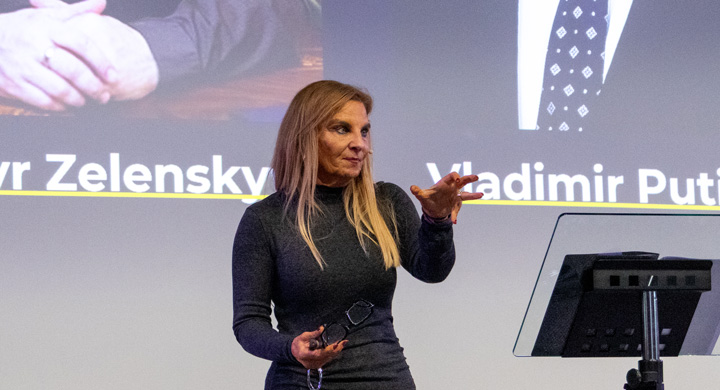
The Mission of God
The Mission of God conference held on 15 November in Tamworth was a blazing counterpoint to this. Co-hosted by Christian Concern and the Ezra Centre for Christian Thought, this year’s annual conference focused on the Bible and Politics.
After a time of worship, our chief executive Andrea Williams kicked off the day. Having just run the Athens Marathon she cited Paul’s speech at the Areopagus in Acts 17 which proclaimed the call of God for all the nations to repent.
Politics at the moment is very confusing. Andrea pointed out that the big figures on the international scene often have mixed records at best – and many political voices with previously good records have taken surprising or concerning directions. In the UK, we see new political figures and parties rising. Some are sympathetic to Christianity, others less, but none have previously been establishment figures.
Add the rise of political Islam in the UK and we have a turbulent scene. Andrea helpfully pointed us back to our Christian past – how King Alfred combined statecraft and Christianity to forge a united identity from the disparate kingdoms of what is now called England. How to this day, our coronation oaths highlight the unavoidably Christian-ness of the United Kingdom. However confusing the political scene may be, recommitting to this Christian faith at the heart of our public life must be the cornerstone of our answer.
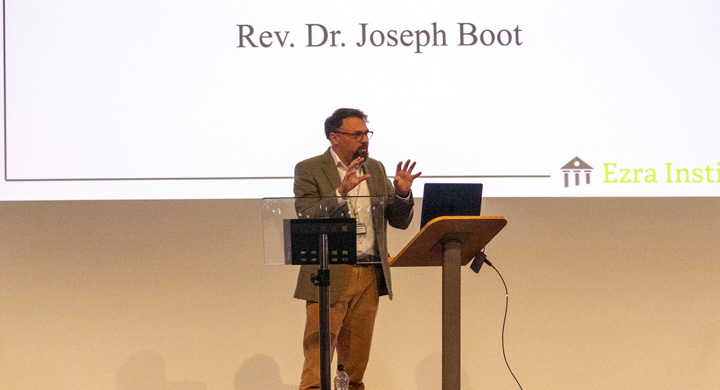
The politics of scripture or civil war?
Andrea was followed by Rev. Dr Joe Boot who leads the Ezra Institute. He grounded the rest of the day with the 10,000-foot view of politics and the Bible. Going all the way back to Eden and Babel, he compellingly showed the inescapably political quality of the gospel.
He then dealt with how scripture speaks to issues of multiculturalism and integration. It has always been possible to integrate people from other cultures where a nation has a clear, committed identity – including in Old Testament Israel and Britain’s Christian past. But a free-for-all secularism operating on atheistic and pluralist principles is simply unable to give a nation cohesion.
Boot ended with the chilling warning from war studies academic David Betz who has highlighted that Western countries like Britain are meeting many of the factors that have in the past led to civil wars.
Christ or chaos.
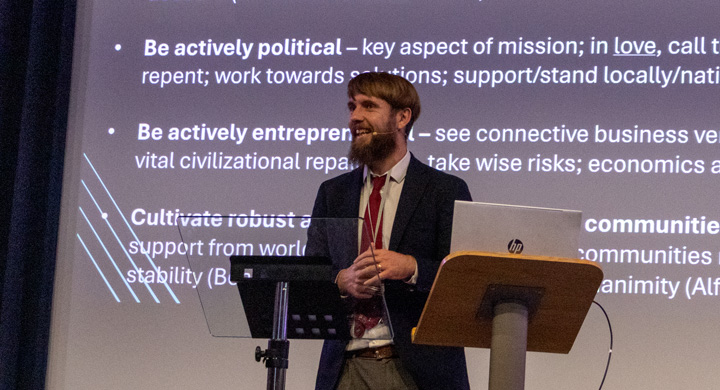
Believe your beliefs out loud
Dr Aaron Edwards then spoke as a late replacement for another speaker who had to deal with an emergency. Nevertheless, he was well-prepared to call us to make our nation Christian again.
He followed Boot in highlighting the Bible’s continuing interest in nations – not merely atomistic individuals. He explained how accusations of ‘Christian nationalism’ are often used as a slur against anyone who wants to see Christianity influence the nation, citing examples from Sky News and humanist Alice Roberts. “It could mean seventeen different things – they just care about shutting you up and stopping you being effective for the kingdom.”
He then suggested six ways we can go about this, one of which was “believe your beliefs out loud”. Without suggesting that we all need to go into politics, he called us to imitate the attitude of King Alfred to the Viking invaders – don’t just wait for endless raids but proactively live by truth and oppose lies.
If we always wait until the point where we absolutely must speak out or do something, the course will already have been set and it will often be too late to avoid disaster. We need to be more willing to be bold by saying the things that need to be said, even if they lead to one or two raised eyebrows.
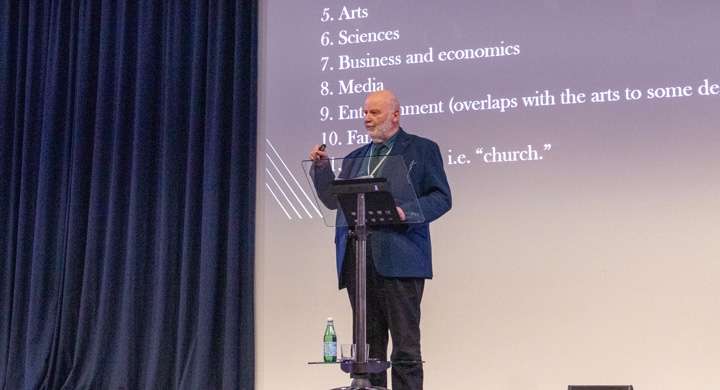
Christianity in every sphere of life
Stephen Perks, Founder and Director of the Kuyper Foundation, was the last to speak, saying the Kingdom of God is the true political order.
He said that the kingdom of God includes many areas of life that need to be shaped in accordance with scripture – including the church and family but also education, welfare, arbitration, the arts, entertainment, and several others.
It occurred to me that the areas closely resembled the groups in our Wilberforce Collective. This initiative equips young adults and connects them to a community where they can cultivate their gifts to proclaim Christ in many different disciplines: film, television, media, law, academia and beyond.
Stephen emphasised the nature of the kingdom of God: a counter-revolutionary, prophetic social order, structured and governed by the covenant of grace. This all-encompassing call may appear overwhelming but to me it is inspiring: just think how much opportunity there is to bless our neighbours by living faithfully and fruitfully in all these spheres.
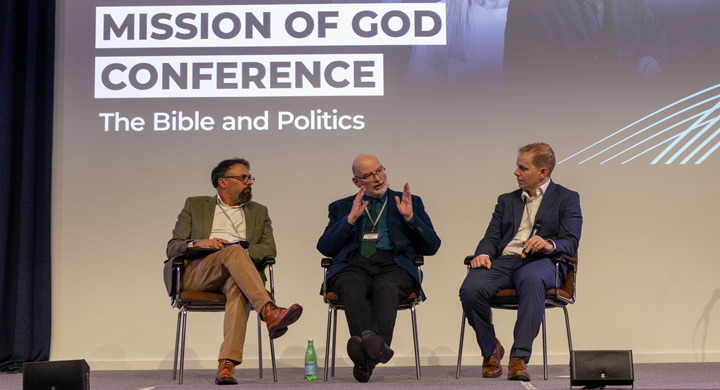
Unpacking the law
The day ended with a question and answers session that I hosted with Joe Boot and Stephen Perks – the other speakers having had to leave the day early.
Both afternoon sessions highlighted the importance of education in this mission of God. The challenges are great, and getting bigger, but the opportunities for raising and discipling young Christians are immense. Taking this discipleship seriously is one of the most practical, impactful actions any Christian or church could take.
But the most telling point for me was a question on how the Bible speaks directly to some of the specifics of modern-day government. Although there is no verse that refers to nuclear weapons or universal credit, someone as familiar with the law as Boot and Perks can very quickly point to verses with direct relevance to the issues at hand.
Most Christians are so far from this level of understanding of the law. Yet these laws were the major focus of spirituality for faithful Israelites throughout the Bible. The longest chapter of the Bible, Psalm 119, is an acrostic love letter to the law. Detailed understanding of the law, and creative application of it, is prominent in the ministry of the Apostle Paul. I don’t believe we are called to live in some woodenly-applied form of obedience to all the Mosaic Law – particularly its ceremonial elements – but all scripture is God-breathed and useful.
If we are unfamiliar with these laws, or living entirely out of step with them, we are missing out on a huge resource for our own lives as well as that of our nation.
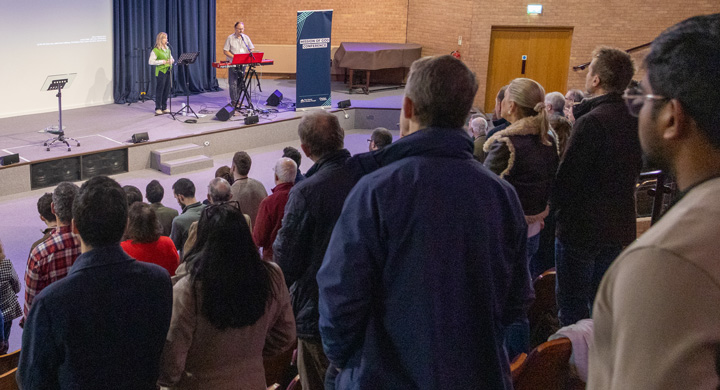
Christians are not ready
Although the Mission of God conference was invigorating and a much-needed antidote to the political indifference often seen among Christians, we need to go much deeper.
Our turbulent times may soon lead to even greater calls to the Christianity that made Britain great. We may see more Christian figures rising to positions of political influence. But will the Church be ready to speak with a unified voice of wisdom and moral conviction?
The only recent political point that the (broadly-defined) Church has been clear and forthright on is that legalising assisted suicide would be a disaster. This is hugely welcome, but far from sufficient.
We need, as Andrea powerfully pointed out, to get beyond the therapeutic gospel. There is no higher blessing than to know God but while we are on earth, we are his servants and ambassadors.
And God is in the business of restoring the cosmos.
“Thy kingdom come
Thy will be done
On earth as it is in heaven”





